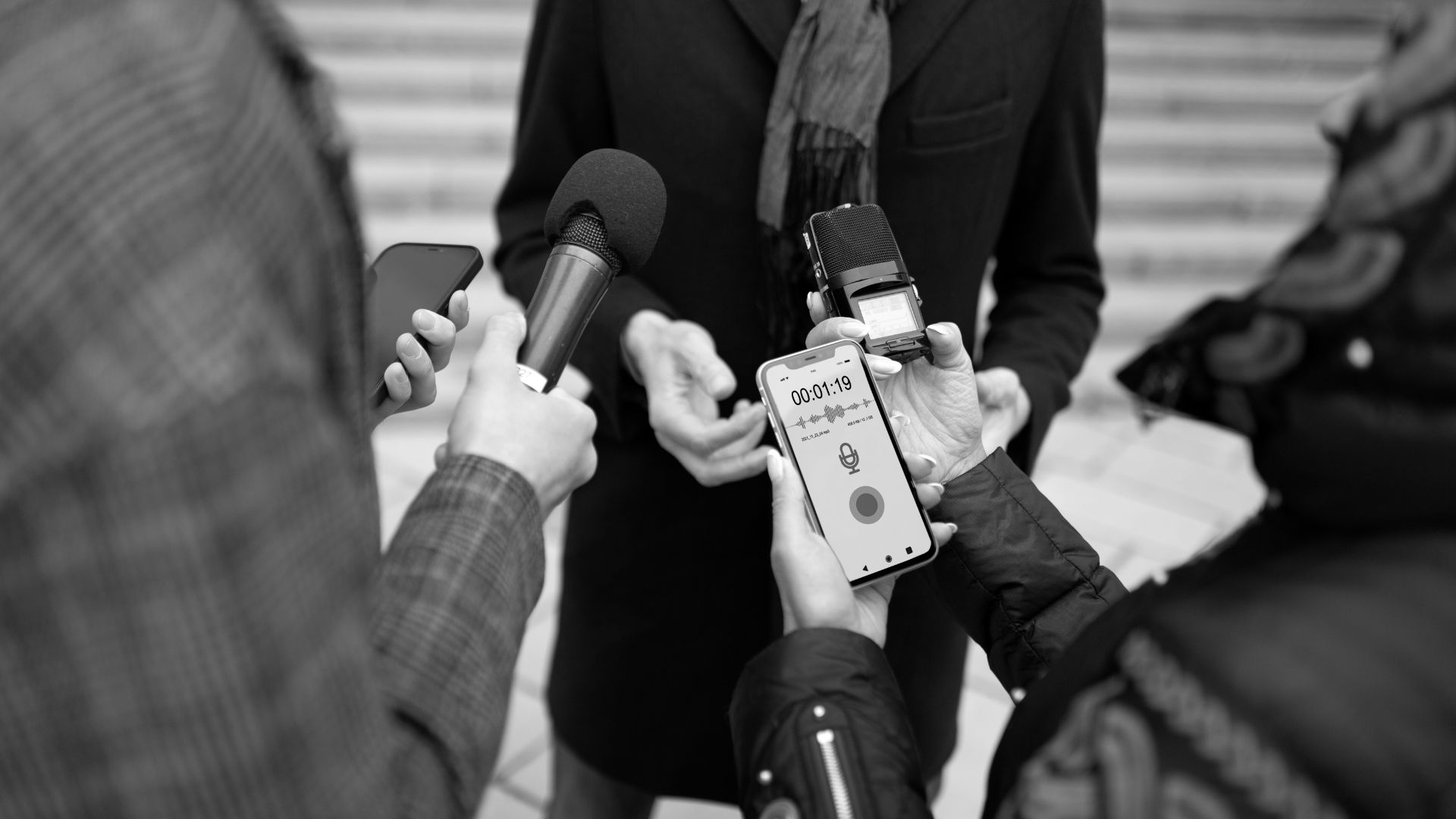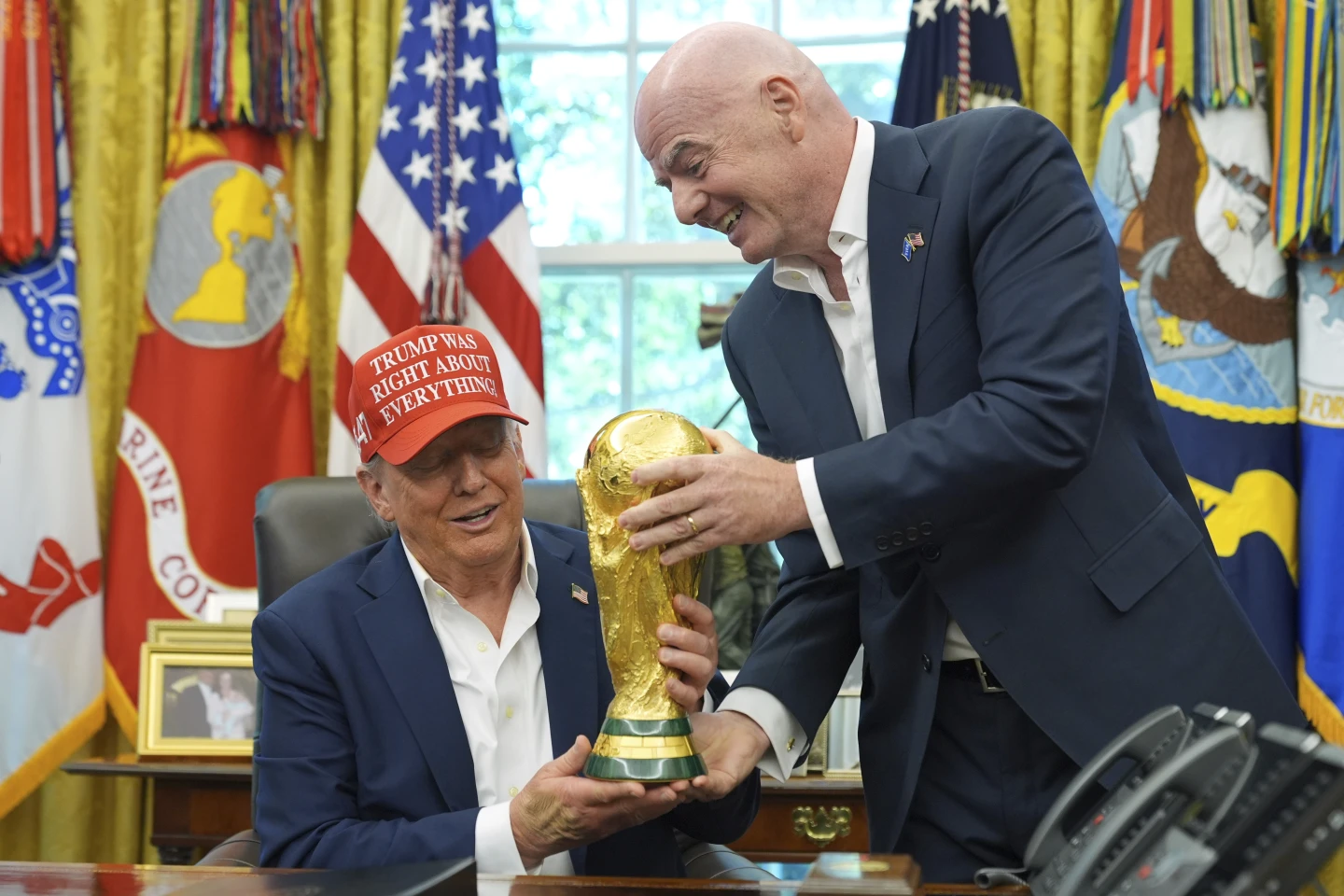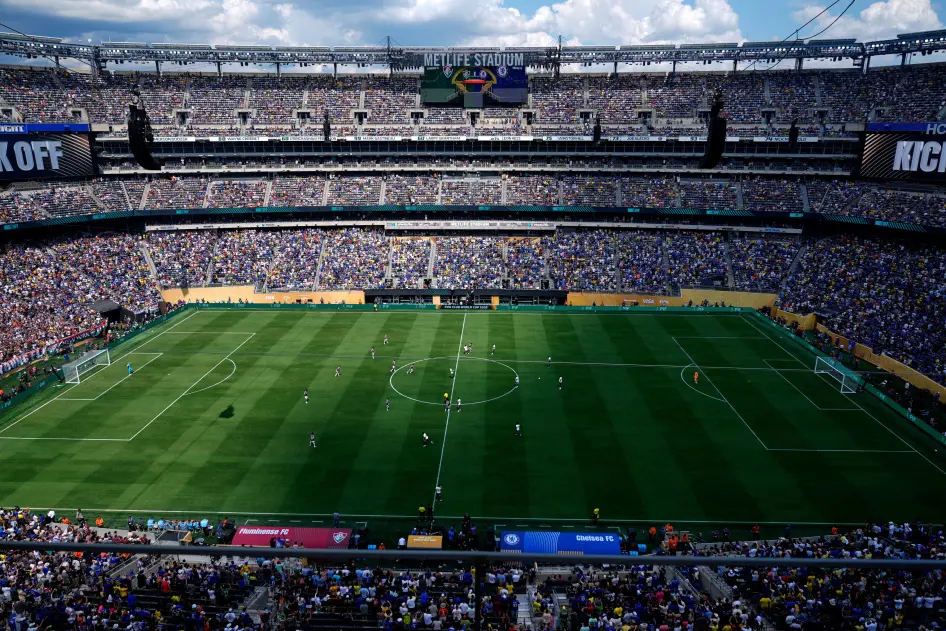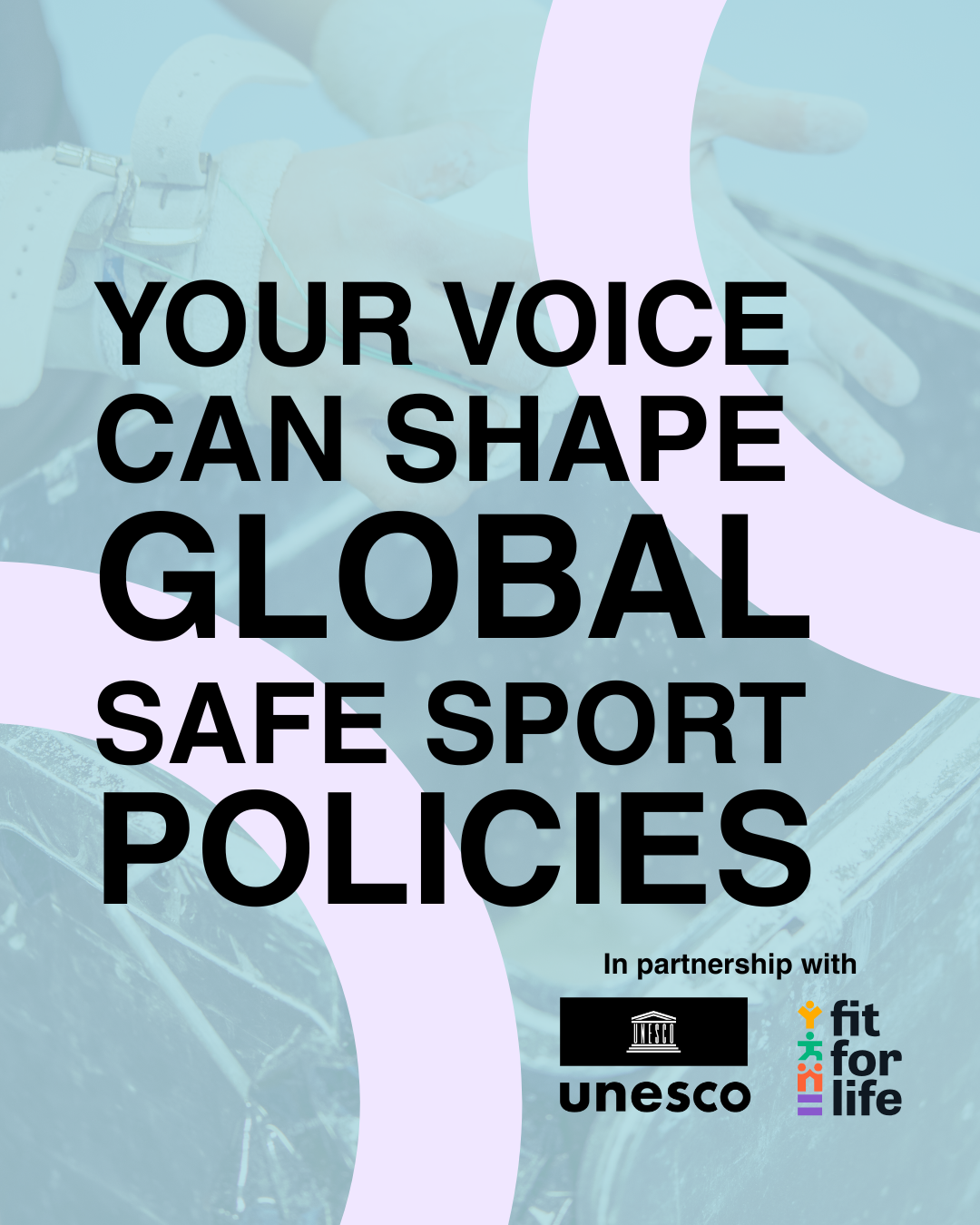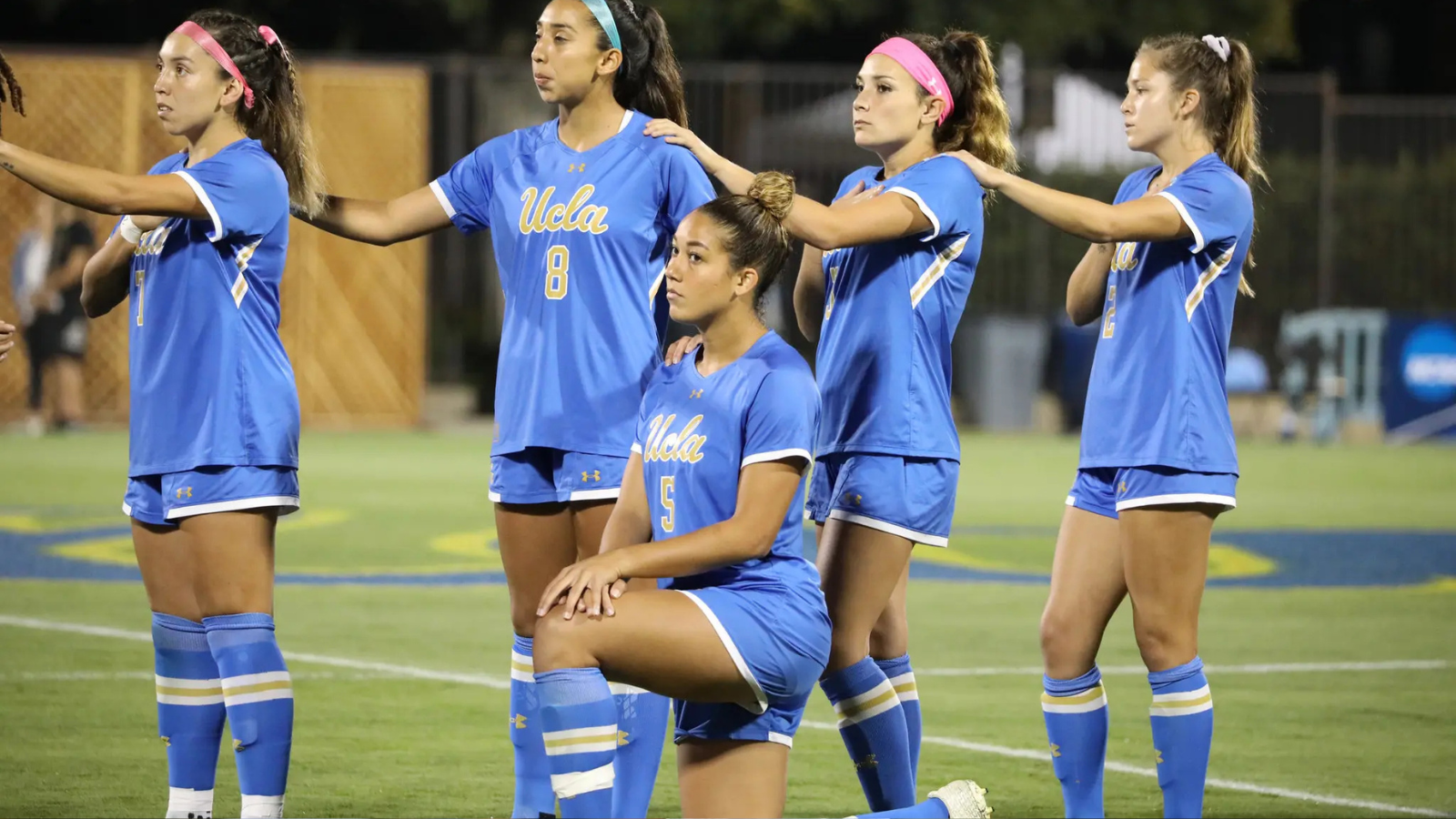(New York) – FIFA should immediately release and commit to implementing the robust Human Rights Framework for the 2026 Men’s Soccer World Cup, which it developed through extensive consultations with civil society stakeholders and public officials from across North America. The framework, which FIFA shared with host cities in March 2024, will govern labor and human rights for all 16 North American host cities.
FIFA should now make the framework public for all stakeholders without any dilution or further delay. FIFA’s continued delay in a public release of the framework raises alarm bells, especially as the work of planning and delivering the World Cup is well underway without those human rights guardrails in place. The Dignity 2026 Coalition calls on the FIFA officials convening on May 17 in Bangkok for the 74th Congress to rectify this critical human rights deficit in FIFA policy.
In early May, FIFA president Gianni Infantino traveled to Washington, D.C., to press the United States to expedite visas for fans. FIFA expects the US to implement many other government guarantees, including massive tax waivers and blanket exemptions from labor law.
“FIFA will need the buy-in of workers, communities, and elected officials for a successful tournament, and that will not happen unless FIFA keeps its promises on human rights,” said Cathy Feingold, director of the AFL-CIO’s International Department. “In light of its financial, operational, and legal demands on host governments, FIFA’s delays and silence on its human rights strategy are particularly glaring.”
The members of Dignity 2026—an alliance of organizations representing millions of civil society stakeholders in the US that works in close partnership with coalitions in Canada and Mexico—have strong concerns about the delay and the status of the concrete human rights standards that Dignity 2026 has advocated for with FIFA, host cities, and the US government. Several of the founding organizations of Dignity 2026, including Human Rights Watch and the AFL-CIO, had worked with the North American Bid Committee in 2018 to shape strong human rights language. Civil society support for the hosting of the 2026 World Cup in North America was premised on these commitments.
“Sports uplift the values of fair play and competition. International competitions like FIFA’s World Cup draw attention to equity, not just through play but by valuing fairness and an equal application of the rules, including the economics of sport,” said Jamal Watkins, Senior Vice President of Strategy and Advancement for the NAACP. “There are NAACP units in each of the 11 US host cities, and we want FIFA to know that we are watching. Through our close relationships, from Seattle to Miami, we are very familiar with the standards and tools in the framework that FIFA shared with host cities in March. We expect that document to be released at once.”
In 2010, FIFA awarded the 2022 World Cup to Qatar without any conditions on human rights protections, despite the country’s poor human rights record and massive infrastructure deficit. FIFA’s decision drew widespread criticism for the need to construct eight stadiums in dangerous heat and the lack of human and labor rights protections in place.
“In view of migrant worker deaths, discrimination against LGBT people, and other abuses at past World Cups, workers, local communities, and rights defenders deserve more than empty promises from FIFA,” said Minky Worden, director of global initiatives at Human Rights Watch. “FIFA needs a concrete, published, and enforceable plan to protect labor and human rights around the 2026 World Cup.”
The Dignity Coalition is concerned that pressure from business partners and future World Cup host countries may account for FIFA’s stalling on human rights. In July, FIFA is expected to confirm that the 2030 World Cup will take place in Morocco, Portugal, and Spain, and that Saudi Arabia will host the 2034 World Cup, raising concerns globally about FIFA’s commitment to human and labor rights.
“FIFA has a chance to remake the world of sport into one that champions fundamental rights and principles on occupational health and safety, worker organizing, gender equality, forced labor, and more,” said Luc Triangle, general secretary of the International Trade Union Confederation. “But it will lose all credibility if it abandons or dilutes concrete standards and implementation criteria that were developed with unions, fans, and human rights organizations.”
About the Dignity 2026 coalition
The Dignity 2026 Coalition brings together 13 national-level human rights groups, labor unions and worker center networks, athletes’ organizations, fans, and migrant rights groups to ensure that the 2026 FIFA World Cup protects affected communities and advances their interests. Member organizations include the AFL-CIO, The Army of Survivors, Athlete Ally, Centro de los Derechos del Migrante (CDM), Global Labor Justice, Grassroots Law & Organizing for Workers (GLOW), Georgetown University Law Center (Harrison Institute), Human Rights Watch, Independent Supporters Council, Jobs with Justice, the NAACP, PowerSwitch Action, and the Sport & Rights Alliance.

